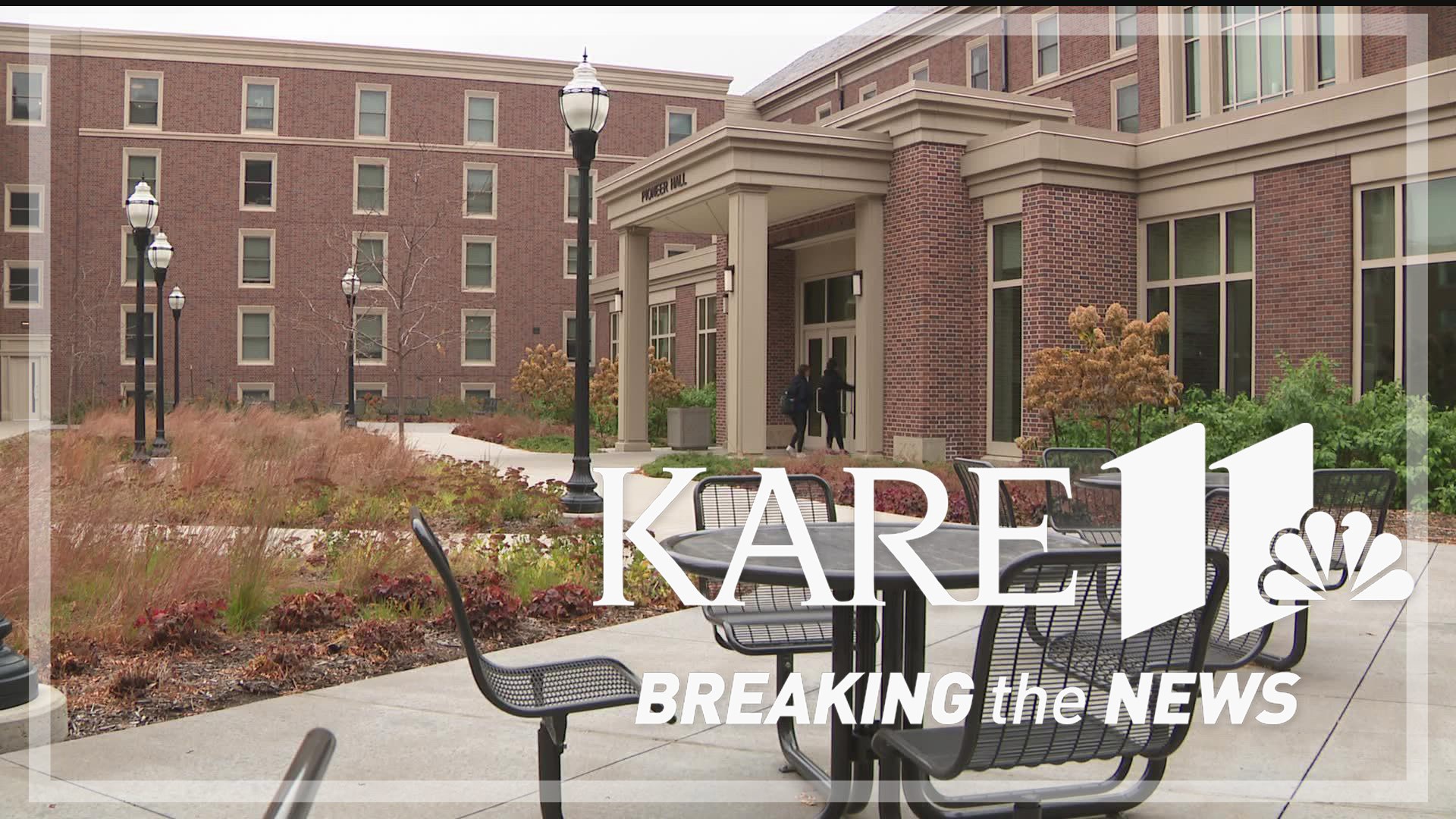MINNEAPOLIS — Now that roughly 1,500 service workers at the University of Minnesota have agreed to a new contract that will raise their minimum wage, they hope that fewer temporary gig workers will be relied on to fill shifts.
"Everyone is glad that food service, and lower paid workers at the University made some significant gains," said Mick Kelly, who has more than 20 years experience as a cook at the Pioneer Dining Hall. "That said, we deserve better."
Kelly says he and his fellow Teamsters have struggled this semester, as they work alongside a rotating cast of co-workers who sign up for just a few shifts, lack workplace knowledge, and then make significantly more per hour. Especially as full-time employees wait for their new contract to kick in.
"I think it's problematic," Kelly said. "We have people who are temporary workers being paid far more than people who have worked here for some time."
Reporter Max Nesterak, with the Minnesota Reformer, saw that pay discrepancy first hand after hearing that shifts were available on an app called BlueCrew.
"I signed up on an app and after confirming I had closed-toe shoes and can stand for eight hours, I was hired as a cook for $22.55 an hour," Nesterak said.
He detailed his experience working in the dining hall, for a new report in the Minnesota Reformer. Despite having no commercial cooking experience, he was tapped to help fill one of the roughly 120 food services openings on the Twin Cities campus right now.
"At one point I was swiping in students next to a second year medical student who told me she was making about $15 an hour," Nesterak said.
And he wasn't just making more than new employees.
"I've been here for 23 years and then to have temps come in making more than me, it's upsetting," said Tammy Sanchez, who currently makes less than $21 an hour.
Max says part of the wage discrepancy involves benefits, which full-time, union employees receive.
"That's a really important part," he said. "When you're a Teamster you get a pension, you get health benefits, you get paid time off, but if you're just trying to pick up some extra shifts and just want some extra money, a higher wage is more appealing."
The new contract signed by the Teamsters will ensure that the minimum wage rises from $15 to $20 an hour, but the increases are not as dramatic for long-time employees.
But there are concerns about $20 an hour being enough to fill all of the current openings. Chartwells, the company that manages dining services for the U of M, also tapped a company called Chef on the Fly this semester, to bring in more than 30 out of state reinforcements.
"Starting wage for those jobs is $22 an hour," Nesterak said. "In addition to flight accommodations and hotel accommodations not too far from here. At the time (they brought them in) there were also concerns of a strike looming and the University had good reason to have concerns that there wouldn't be enough workers to keep students fed during a strike."
Now that that strike has been averted, Nesterak was told there is a plan to phase out the more costly temps, and add more full-time, union employees.
Kelly and Sanchez say they'll believe it when they see it.
"I think things might change," Kelly said. "The fact of the matter is, because we were willing to strike, we did make some appreciable differences. That's an absolute fact. Do we deserve better? That's a fact, too. So how much will things change? That's remains to be seen."
Watch more Breaking The News:
Watch all of the latest stories from Breaking The News in our YouTube playlist:

